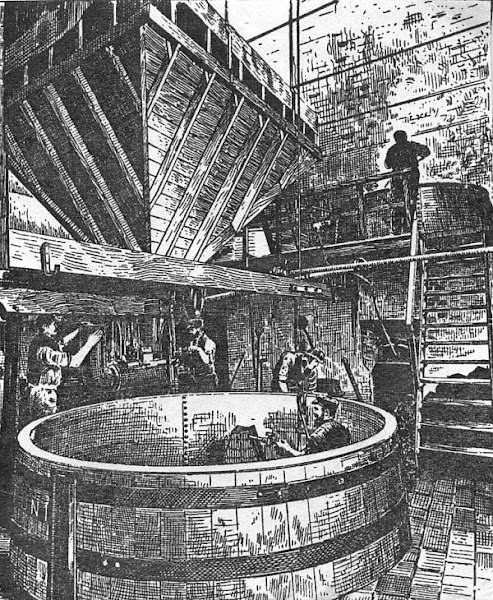


I have some good news and some bad news. Per my dark nature, I’ll give you the bad news first: our sub-letter, Blue Marble Energy is moving their production facility to Corvallis, MT. We’ve enjoyed a symbiotic relationship with this green energy company by giving them our spent grain which they essentially distill into high-grade chemical compounds for use in food flavorings, cosmetics and other products. The byproduct of this biorefining process is ammonia and methane which they will clean and sell as a clean, green renewable energy source. This is bad news because off-loading our spent grain has saved us about $500 a month in disposal costs – plus, they’ve been fun neighbors.
The good news – besides the fact that Corvallis will inherit a cutting-edge biochemical refinery* – is that we’ll be forced to come up with new, creative uses for our spent grain. Right now, we, like many microbreweries in town, have relationships with farmers who pick up our grain and feed it to their cattle, pigs and chickens instead of feeding them commercial feed which is expensive and usually loaded with lots of stuff animals were never meant to ingest. This is fine but pick-ups are sporadic and then there’s the little problem of all these farmers driving down from places like Marysville, emitting all those green house gasses for one truck-load of feed. (The photos above depict one of our takers. As you may gather, he's no hippy-dippy, anti-capitalist, slow-foodie -- just a guy who wants cheap, good feed.)
We’d like to expand and regularize this exchange for the benefit of not just farmers and Fremont Brewing Company but for many other local microbreweries. Just brainstorming here but wouldn’t it be great to develop a program that would pick up breweries’ spent grain, deposit it in one place (say, the new North transfer station, whenever and wherever it finally gets built), and then transport it to one central location (like, say, Cedar Grove’s facility up north) where farmers could pick it up closer to their farms?
To make this happen we’d need the cooperation of the City (which runs the transfer stations) and a company with big trucks like Cedar Grove as well as $. Maybe a regional entity could kick in some start-up funds and once a threshold number of breweries and farmers were involved, it could be self-sustaining, with breweries paying a fee much smaller than their regular disposal bill and farmers paying much less for animal feed than they would pay for commercially-available and antibiotic-laced feed (to say nothing of other nasty ingredients in industrialized feed that can make people and animals very sick).
It’s just an idea and in the meantime, we bid the folks at Blue Marble Energy farewell (although their corporate office will remain in Seattle) and the best of luck as they expand their business. To learn more about BME’s ventures, see http://bluemarblebio.com/newsroom/blue-marble-biomaterials-to-launch-specialty-biochemical-refinery/
* Why BME is taking its technology and jobs to Montana instead of relocating somewhere else in Washington is a matter for another day but suffice it to say WA dropped the ball on this one.





1 comment:
Cool! You could also try and see if any local bakeries have an interest in using your spent grain in baked goods. (I've made some delicious multigrain bread with spent grain from homebrewing).
Post a Comment